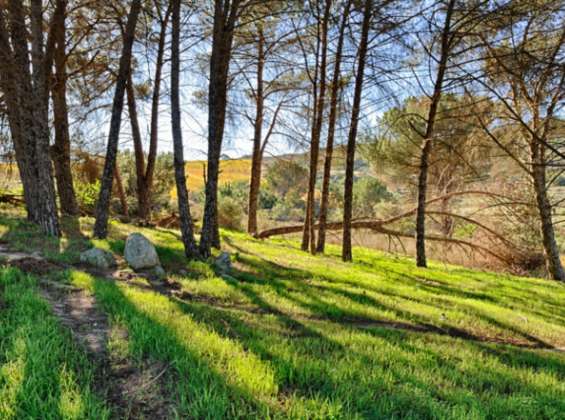
Jai Dhar Gupta, a passionate environmentalist, has dedicated the past 10 years of his life to combating air pollution in India. His journey began in 2013 when he developed bronchial asthma from the polluted air of Delhi. In 2021, frustrated with the lack of progress in improving air quality in Delhi, Jai pursued an alternative plan. He shifted his focus to Uttarakhand, a region known for its pristine skies and untouched natural beauty, outside the airshed of Delhi.
Jai pursued his vision and embarked on an ambitious project to create the first private forest reserve in Uttarakhand, in the buffer zone of the Rajaji Tiger Reserve. Named the Rajaji Raghati Biosphere (RRB), this initiative aimed to establish a living commune for wildlife, forests, climate science, and environmental experts on over 35 acres of land in Baddiwala, Uttarakhand. Jai's ultimate goal was to develop RRB as a thriving ecosystem, serving as a model for global cohabitation and a small response to the challenges posed by climate change.
Situated on the southern side of the Rajaji Tiger Reserve, RRB is contiguous with the government's forest area, covering a vast expanse of 820 square kilometers. The project's initial phase involved planting 6,000 trees, shrubs, and grasses between March and July 2023, marking the beginning of the rewilding and coexistence initiative.
Jai, the driving force behind this endeavor, likened himself to an artist with a 35-acre canvas. His aspirations included nurturing the forest, protecting its biodiversity, restoring rare tree species, and measuring ecological succession and climate science research. Additionally, Jai aimed to establish RRB as a carbon sink, foster local community development, promote forestry, and conserve biodiversity. His ultimate goal is to re-charge the Raghati River through his re-wilding and rainwater harvesting initiatives. Prioritizing the planet's well-being, Jai eagerly anticipates witnessing the evolution of RRB and its future contributions to humankind. The prospect of breathing pure air and embracing nature in its myriad forms fills him with joy and anticipation.
Leading the rewilding initiative, Vijay Dhasmana envisions expanding the reach of the Rajaji forests into previously intensively cultivated lands. To achieve this, native forest plants such as Doodhi, Haldu, Kaim, Rohini, Kumbha, Padal, and Dhaula, along with other species from the Rajaji forests, would be meticulously planted. Vijay believes this project could serve as a role model for rewilding in the region, inspiring other private landowners to embark on similar endeavors.
While the viability of such conservation models remained uncertain, the initiative has already taken flight. Through careful planning and collaboration, Jai and his team aim to contribute their part in restoring and appreciating India's forests and wildlife. Their efforts hold the potential to shape a brighter future, where coexistence and interdependence with nature are the way forward.






Leave A Comment
Your email address will not be published. Required fields are marked.